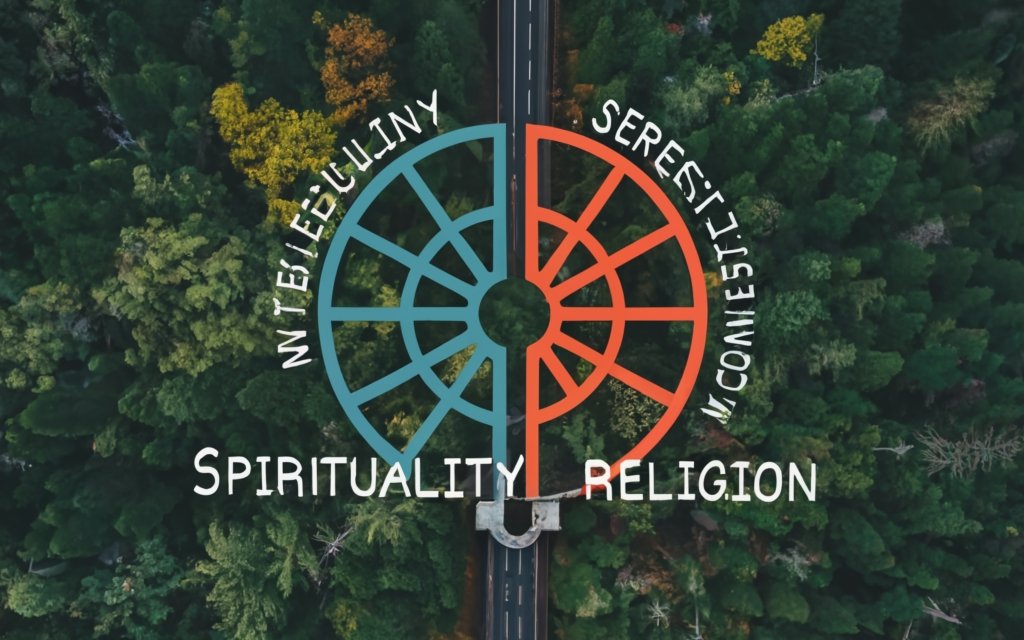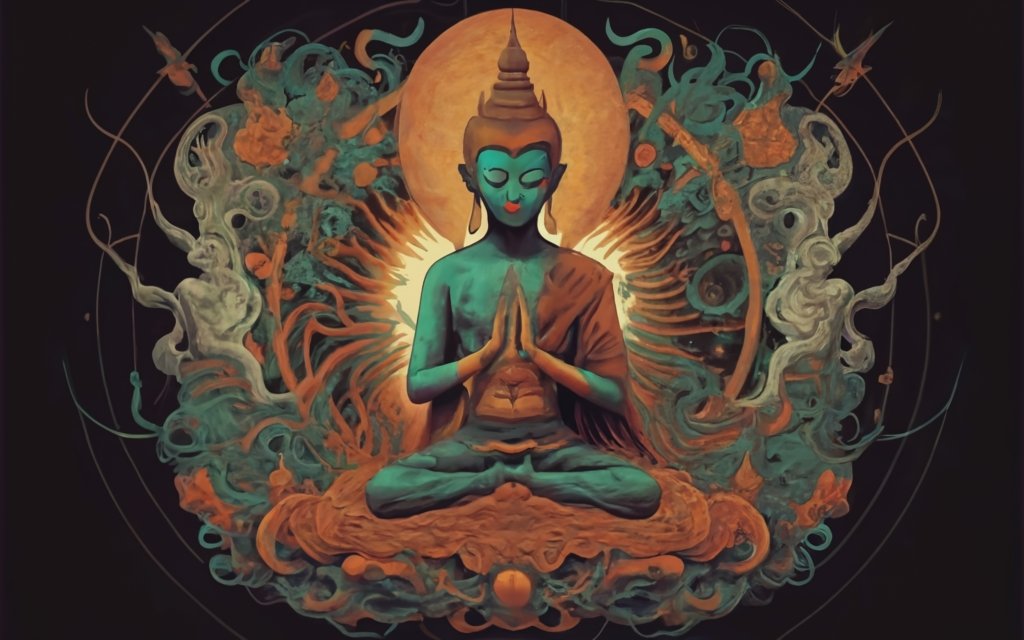Unlocking the Essence of Spirituality: Beyond the Boundaries of Religion
Embrace the Spiritual Journey

In a world brimming with diverse beliefs and practices, it’s only natural to ponder the question: What is considered spiritual? This article delves into the heart of spirituality, distinguishing it from religion and guiding you on a path that transcends the confines of faith communities and churches.
Defining the Spiritual Realm
Spirituality, in its purest essence, is the profound connection between oneself and the intangible, transcendent elements of existence. It’s a journey that goes beyond the rituals and doctrines of organized religions. It’s about discovering the spiritual essence within and around us, embracing the profound questions that often lead to a deeper understanding of life’s mysteries.
Spirituality vs. Religion: Bridging the Gap

Many wonder if spirituality and religion are two sides of the same coin. While they share some common ground, they are distinct in their essence. Religion typically involves a structured system of beliefs, rituals, and moral codes within the framework of an organized faith community. Spirituality, on the other hand, is a personal and individualistic experience that explores the inner dimensions of the self and the universe.
A Spiritual Odyssey
Embarking on a spiritual journey doesn’t require church attendance or membership in a faith community. It’s a deeply personal expedition that transcends physical boundaries. To understand what is considered spiritual, one must open their heart and mind to the infinite possibilities of the universe.
Exploring Spiritual Warfare

Spiritual warfare is a term that often raises curiosity. It refers to the internal struggle between one’s higher self and the negative influences or forces that can hinder spiritual growth. This battle takes place within the depths of the soul and can manifest as doubt, fear, or temptation.
Spiritual Insights from Different Traditions
To grasp the multifaceted nature of spirituality, we can draw inspiration from various traditions. In Buddhism, the concept of “spirit” is known as “spiritual essence” or “consciousness.” It’s the awareness that connects all living beings and the universe, emphasizing the interconnectedness of all things.
Addressing Spiritual Abuse

In some cases, spirituality can be marred by negative experiences, such as spiritual abuse within religious institutions. Spiritual abuse occurs when individuals or organizations manipulate and control others through spiritual beliefs, causing emotional and psychological harm. Recognizing and addressing such issues is essential for personal and collective spiritual growth.
Unwrapping Spiritual Gifts
Spiritual gifts are unique talents or abilities that individuals possess, often attributed to a divine source. These gifts can include empathy, intuition, healing abilities, and more. Recognizing and nurturing these gifts can lead to a deeper connection with one’s spiritual self and a greater sense of purpose.
Navigating the Terrain of Spiritual Warfare

In our pursuit of understanding spirituality, it’s essential to explore the concept of spiritual warfare more deeply. While this term may initially sound intimidating, it’s a crucial aspect of the spiritual journey.
Spiritual warfare isn’t a battle fought with physical weapons; rather, it’s an internal struggle between light and darkness within our own souls. It encompasses the conflicts we face when striving for spiritual growth and the challenges that test our faith and resolve.
The Bible’s Perspective on Spiritual Warfare
To gain insights into spiritual warfare, we turn to the Bible. In this sacred text, spiritual warfare is depicted as a battle between the forces of good and evil. It’s a constant, invisible struggle that plays out in the hearts and minds of individuals.
Understanding spiritual warfare through the lens of the Bible helps us recognize the importance of staying spiritually vigilant. It emphasizes the need to put on spiritual armor, which includes qualities like faith, righteousness, and truth, to withstand the trials that may come our way.
Buddhism and the Battle Within

From a Buddhist perspective, the concept of spiritual warfare finds resonance in the idea of conquering one’s inner demons. Buddhism teaches that our greatest adversaries are often our own desires, attachments, and ego. Overcoming these inner obstacles is a form of spiritual warfare that leads to enlightenment.
Spiritual Abuse: A Dark Side of Faith Communities
While spirituality offers a path to inner peace and growth, it’s essential to acknowledge the shadows that can lurk within religious institutions. Spiritual abuse, sadly, is not uncommon. It occurs when individuals misuse their spiritual authority to manipulate and control others.
Recognizing and addressing spiritual abuse is crucial for safeguarding the integrity of one’s spiritual journey. It’s a battle against exploitation and deception, emphasizing the importance of seeking genuine spiritual guidance and support.
Unveiling Your Spiritual Gifts: A Form of Spiritual Warfare

As we navigate the terrain of spiritual warfare, we discover that recognizing and nurturing our spiritual gifts is a powerful weapon against negativity and darkness. These gifts are unique to each individual and can be harnessed to bring light into the world.
By embracing and developing our spiritual gifts, we not only strengthen our own spiritual journey but also contribute positively to the collective spiritual consciousness. It’s a form of spiritual warfare that combats despair and apathy, replacing them with hope and compassion.
In Conclusion: A Battle Worth Fighting

In conclusion, spiritual warfare is an integral part of the spiritual journey. It’s the ongoing battle to overcome inner obstacles, stay true to our spiritual path, and resist the negative influences that can hinder our growth. By understanding the concept of spiritual warfare, drawing inspiration from various traditions, and addressing issues like spiritual abuse, we can navigate this journey more effectively.
Remember that your spiritual path is unique, and the battles you face are opportunities for growth and transformation. Embrace the light within you, harness your spiritual gifts, and stand strong in the face of spiritual warfare. In doing so, you’ll discover a deeper connection to the spiritual essence that surrounds us all.
FAQ: Navigating the Spiritual Landscape
As we delve deeper into the realms of spirituality and spiritual warfare, it’s natural for questions to arise. In this section, we address some frequently asked questions to provide further clarity on this profound journey.
Q1: What Is Considered Spiritual?
A1: Spirituality is the exploration of the profound connection between oneself and the intangible, transcendent elements of existence. It goes beyond religious rituals and doctrines, encompassing the personal and individualistic quest for understanding life’s mysteries.
Q2: How Is Spiritual Warfare Defined?
A2: Spiritual warfare is the internal struggle between one’s higher self and negative influences or forces that hinder spiritual growth. It’s a battle within the soul, often manifesting as doubt, fear, or temptation.
Q3: Can Spirituality and Religion Coexist?
A3: While spirituality and religion share common elements, they are distinct. Religion involves structured beliefs and rituals within faith communities, while spirituality is a personal, individual journey that explores the inner dimensions of self and the universe.
Q4: What Does the Bible Say About Spiritual Warfare?
A4: The Bible portrays spiritual warfare as a battle between good and evil, fought within the hearts and minds of individuals. It emphasizes the need for spiritual armor, including qualities like faith and righteousness, to withstand challenges.
Q5: How Does Buddhism View Spiritual Warfare?
A5: Buddhism sees spiritual warfare as the conquest of inner demons, such as desires and attachments, on the path to enlightenment. It’s a battle against one’s own ego and inner obstacles.
Q6: What Is Spiritual Abuse, and How Can It Be Addressed?
A6: Spiritual abuse occurs when spiritual authority is misused to manipulate and control others. To address it, individuals should recognize the signs, seek genuine spiritual guidance, and support those affected by spiritual abuse.
Q7: What Are Considered Spiritual Gifts?
A7: Spiritual gifts are unique talents or abilities, often attributed to a divine source. They can include empathy, intuition, healing abilities, and more. Nurturing these gifts contributes positively to one’s spiritual journey and the collective spiritual consciousness.
Q8: How Can I Navigate Spiritual Warfare Effectively?
A8: To navigate spiritual warfare, embrace your spiritual gifts, draw inspiration from various traditions, and stay spiritually vigilant. Remember that challenges are opportunities for growth and transformation on your unique spiritual path.
Q9: Is Spirituality a Personal or Collective Journey?
A9: Spirituality can be both personal and collective. While it’s an individual journey of self-discovery, it also contributes to the broader spiritual consciousness of humanity, fostering interconnectedness and compassion.
Q10: How Can I Embrace the Light Within Me?
A10: Embracing the light within involves self-awareness, meditation, and nurturing your spiritual gifts. It’s about recognizing your inner strength and using it to bring positivity and hope to the world.
In your spiritual journey, these questions serve as guides, helping you navigate the intricate terrain of spirituality and spiritual warfare. Remember that each step you take brings you closer to a deeper understanding of your spiritual essence and its connection to the universe.






